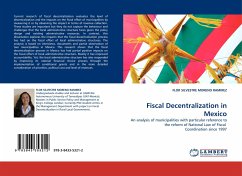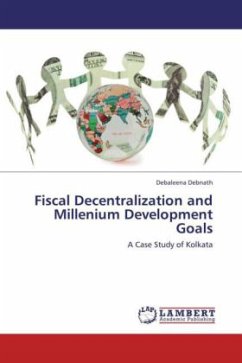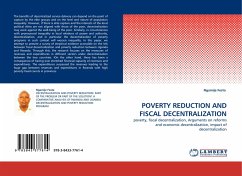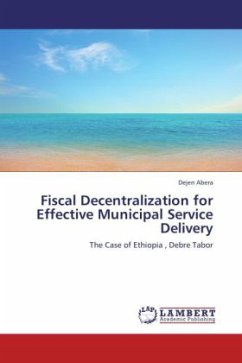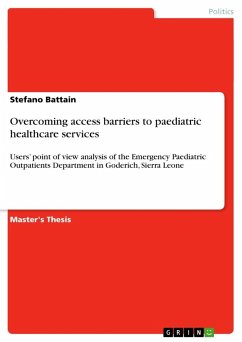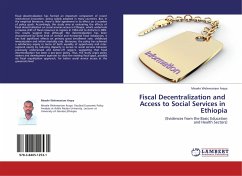
Fiscal Decentralization and Access to Social Services in Ethiopia
(Evidences from the Basic Education and Health Sectors)
Versandkostenfrei!
Versandfertig in 6-10 Tagen
32,99 €
inkl. MwSt.

PAYBACK Punkte
16 °P sammeln!
Fiscal decentralization has formed an important component of recent institutional innovation, being widely adopted in many countries. But, in the empirical literature, there is little agreement in its effect on a number of policy goals. Accordingly, this study aims at evaluating the effects of fiscal decentralization on social services access in Ethiopia, which undertook a massive shift of fiscal resources to regions in 1994 and to districts in 2002. The results suggest that although the decentralization has been characterized by some kind of vertical and horizontal fiscal imbalances, it has h...
Fiscal decentralization has formed an important component of recent institutional innovation, being widely adopted in many countries. But, in the empirical literature, there is little agreement in its effect on a number of policy goals. Accordingly, this study aims at evaluating the effects of fiscal decentralization on social services access in Ethiopia, which undertook a massive shift of fiscal resources to regions in 1994 and to districts in 2002. The results suggest that although the decentralization has been characterized by some kind of vertical and horizontal fiscal imbalances, it has had significant effects on primary gross enrollment rate, childhood immunization and infant mortality rate. Moreover, the policy has achieved a satisfactory equity in terms of both equality of opportunity and inter-regional equity by reducing disparity in access to social services between previously underserved and better-off regions, suggesting that fiscal decentralization has been a pro-poor policy. Thus, the study urges policy makers and development agencies to close the existing fiscal gaps, possibly via fiscal equalization approach, for better social service access at the grassroots level




